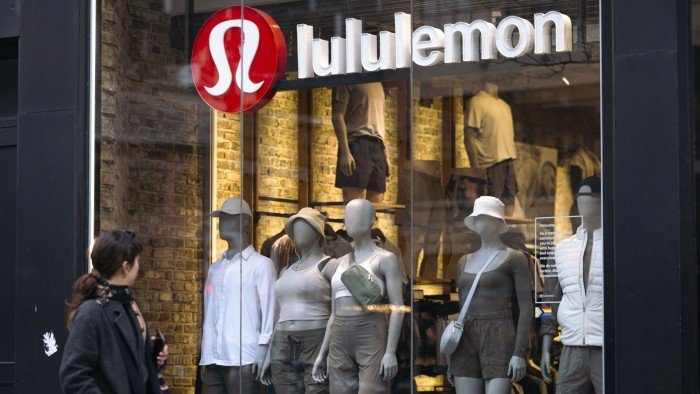Unlock the Editor’s Digest for free
Roula Khalaf, Editor of the FT, selects her favourite stories in this weekly newsletter.
The writer is founder and editor of Footnoted.com
When Lululemon held its annual general meeting earlier this month, there was a single shareholder proposal from a small group called Bowyer Research. questioning the Vancouver-based athleisure company’s devotion to various woke causes including the company’s Centre for Social Impact, which gives grants to various non-profits.
According to Bowyer’s proposal filed in Lululemon’s proxy statement on April 29, the company provided grants to a campaign called “Don’t Ban Equality” which focuses on reproductive healthcare issues, including access to abortion for employees. Bowyer wrote that “the choice to politicise the Lululemon brand carries the increasing possibility of alienating employees and customers alike of diverse political and religious views, as well as negatively impacting shareholder return.” In its response, the company wrote that Bowyer’s proposal was “unnecessary and not in the best interests” of Lululemon and its shareholders.
At Lululemon’s annual meeting on June 11, the proposal didn’t even garner 1 per cent of all votes cast. But it is one of dozens that various conservative-oriented groups, including Bowyer, sponsored this year at some of America’s largest companies, including Alphabet, Goldman Sachs, Meta and Walmart Stores.
Shareholder proposals have long been the province of left-leaning groups, challenging a variety of issues ranging from excessive pay, to human rights and environmental issues.
Now more conservative-leaning groups are deploying the shareholder proposal process for right-leaning causes, possibly emboldened by the broader political backlash against diversity, equity and inclusion issues and several recent US Supreme Court decisions including Students for Fair Admissions vs Harvard, which found that race-based affirmative action programmes were discriminatory,
Among the top proposals this season include recommendations to prevent the use of DEI goals to set executive pay and to prevent alleged boycotts of certain right-leaning websites, including X, the site formerly known as Twitter.
While none of these proposals came close to passing, it’s a sign that conservative-leaning groups are seeking influence through the corporate ballot box.
My research found Bowyer, which is based in Pennsylvania, has so far made proposals at 19 separate companies in 2025, including the one it sponsored at Lululemon. That was more than double the number of proposals it sponsored at various companies in 2024, and a significant jump from zero in 2023. A similar group, the National Center for Public Policy Research, sponsored proposals at 22 different companies this past year, including several that Bowyer also targeted. A third group — the National Legal and Policy Center — sponsored shareholder proposals at nine companies.
At Deere & Co, the Midwestern-based heavy equipment manufacturer, all three groups submitted proposals. None of the proposals passed. Of course, these conservative groups have only been at this for a relatively short time. It can often take several years for a proposal to start generating traction with investors.
But time might also be working against them and any proxy activists, left or right wing. Under the leadership of new chair Paul Atkins, a well-known conservative, the Securities and Exchange Commission is expected to take a more management-friendly approach to regulation on the proxy voting process, allowing a company to more easily exclude shareholder proposals. Reuters reported this week that the SEC is discussing changes which would make it harder for activist shareholders with small stakes to launch proxy contests and curb repetitive proxy proposals from minority investors.
That would be another blow to the role of annual meetings holding management and boards to account. Already, shareholder proposals are typically nonbinding for a US company. So boards do not have to make any changes in response to a proposal, no matter how many shareholders vote in favour of it. Many AGMs are also now held virtually, insulating directors from the pressure of questions raised from the floor.
Many companies also actively fight shareholder proposals from making it to the proxy statement in the first place. This month, Procter & Gamble submitted a request to the US Securities and Exchange Commission seeking to keep one such proposal by the National Legal and Policy Center off its proxy. That decision is listed as pending.
While I vote in every election at the local, state and federal level in my home state of California, I’m not always so diligent when it comes to shareholder voting for the various individual stocks that I own. Democratic processes work best when votes count, whatever their political hue.

